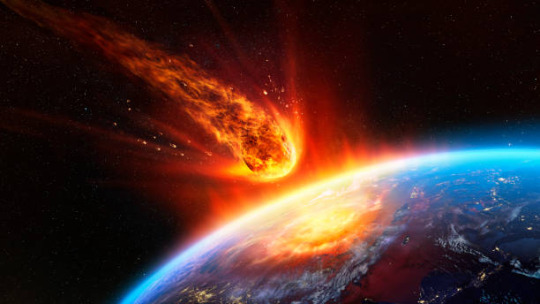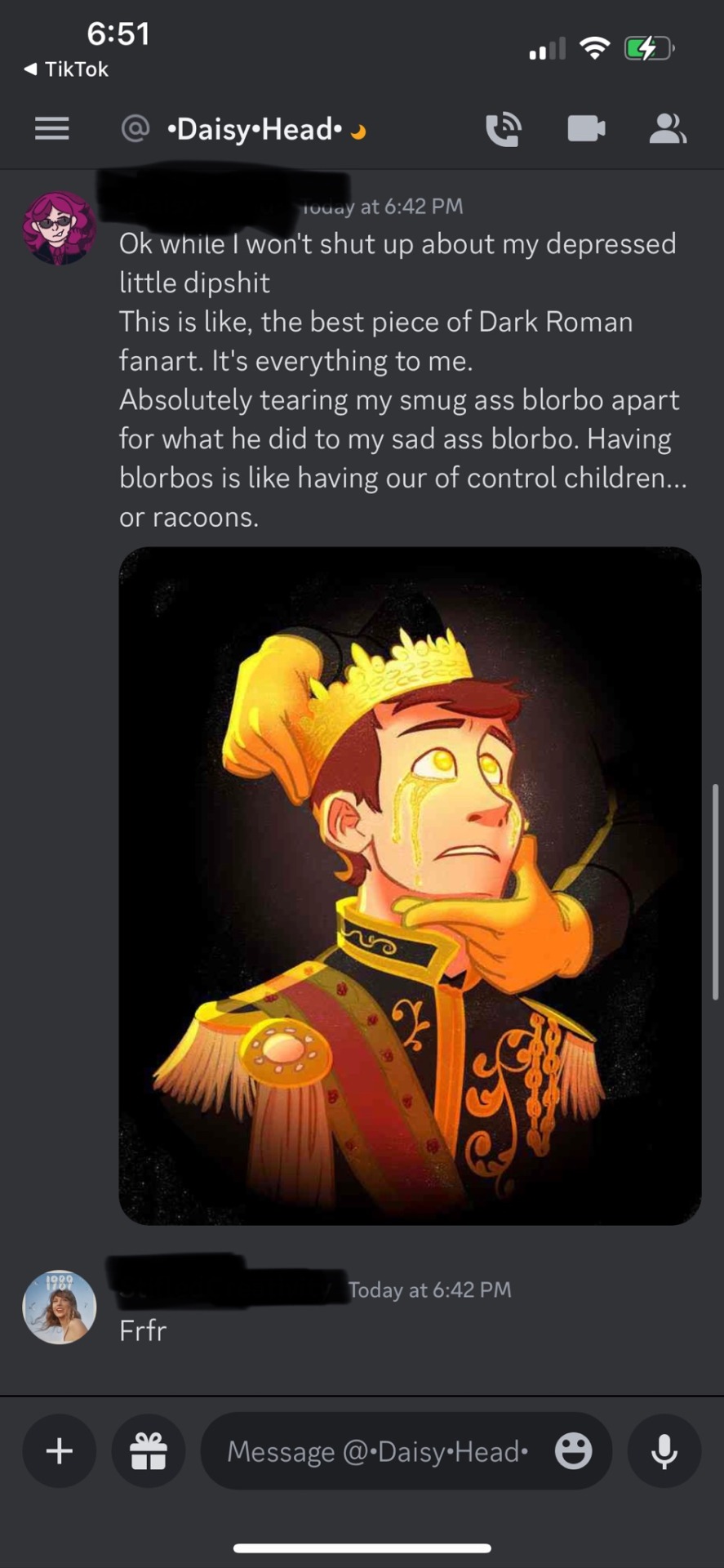#captialism
Explore tagged Tumblr posts
Text

sooooo.... we gonna put health insurance CEOs on trial for first degree murder as well?
EDIT: Sorry that this wasn't clear - there are numerous definitions for first-degree murder in NY and the above is one of them, however Luigi isn't being charged on this account (rather the account of terrorism which makes even less sense imo) source: x
#give me that nuremburg style#deny defend depose#luigi mangione#brian thompson#united healthcare#uhc#united states#captialism
111 notes
·
View notes
Text
it's nice that it took 3-4 months of being out of 12 step (which i was in for over a year) to finally realize what it means for relapse to be part of recovery, instead of a setback.
in the rooms i'd hear "if you're not working on your recovery, you're working on your relapse." and "working on your recovery" meant not just taking care of yourself, but doing the steps, doing service, praying, getting right with God, etc.
it's such a backwards view of things. people don't just stop taking of themselves for no reason, and not everyone is going to find a rigorously spiritual approach conductive.
someone who isn't doing well (mentally, socially, physically, or spiritually) isn't struggling because they're inherently self-centered and turning their back on god. they're struggling because there is something wrong! treating addiction like a flaw in the individual is so fucking harmful!
i just ugh!! we live in a society where people are neglected and abused and otherwise taken advantage of en masse! people are scrambling for scraps, working themselves to death, being left to suffer in traumatic environments, dealing with poverty, living in the ever-present fear of financial ruin!
that is not self-centeredness! that is a core issue in our society that is hurting people. so no! people who use drugs are not the problem. people who struggle in abstinence are not the problem. that kind of logic KILLS PEOPLE. that is part of why some people following a 12 step recovery approach (or deprogramming from one) KILL THEMSELVES. and NO ONE TALKS ABOUT IT.
...addicts deserve so much better.
#only-knives#julian rants#12 step#deprogramming aa#leaving aa#deprogramming#sobriety#abstinence#harm reduction#substance use#substance use disorder#addiction recovery#recovering addict#addiction#mental health#mental health recovery#anticapitalism#anticapitalist#trauma survivor#abuse survivor#survivor#poverty#captialism#anti capitalism#social justice
23 notes
·
View notes
Text
Everything they said. When yall ready to fight the real evil, let me know.
21 notes
·
View notes
Text



i guess we're starting to see why the gop want to outlaw abortion smfh
#politics#gop#child labor#child labor laws#conservative fuckery#captialism#florida#republicans#smfh#child protections#GOP florida#child rights#child welfare#child labor GOP#child protection rollback#florida politics#child safety#GOP policy#child exploitation#labor regulations#GOP agenda#child welfare rollback#child labor debate#florida legislation#GOP priorities
263 notes
·
View notes
Text




Speciality: Hungarian Ikarus Bus on test drive in Los Angeles The lady (also Hungarian) on the cover is the main engineer for this model 1978
#hungary#usa#la#los angeles#ikarus#icarus#bus#vintage#socialist#socialism#capitalist#captialism#magazine
260 notes
·
View notes
Text

Local adventure capitalist Catpy owner of "Cat's fence" has ran into a bankruptcy after a series of failed New and original food which left it with zero stars
26 notes
·
View notes
Text
How To Grind A Human
Several poems “in development” from my notebooks offering a commentary on the experiences of gig workers. They draw from a mix of influences, with E. E. Cummings particularly shaping the punctuation, grammar, and phrasing. the endless taskrabbit teeth of industrythey handed me a hat with no brima contract scratched in disappearing inkand said, run,the roads are your lungs now.each tick of the…
#anarchist#anarchy-surrealism#captialism#Consumerism#Creative writing#gig economy#gig worker#Philosophy#Poem#poet#Poetry#surrealism
14 notes
·
View notes
Text
One thing I find hard about being an elder millennial in this era is trying to figure out if my disdain for a certain technology is just me being old and scared of being left behind or if the tech really does just suck. We have tech bros trying to squeeze every ounce of profit out of something and hyping a product that is literally shittier than the last model and selling tech that they claim will change the world, but could just as easily destroy it.
My husband said that I would hate living in Star Trek because I don't like "talking" to my phone (using Google Assistant). But I said the difference is the computer in Star Trek was literally helping (I would be friends with Data) and was not profiting because there was no money. All tech was literally designed for the benefit of life forms and not to fund some tech bro billionaire's chunk of Maui.
I feel like I'm sitting on my front porch, mumbling about kids these days sometimes, but it's not the kid's fault. It's this ecosystem of consumption at all cost.
Now get off my lawn.
34 notes
·
View notes
Text
So the biggest display of captialism we've seen (maybe ever) just happened to be on Luigi's birthday?!?!? Something ain't adding up.... *cue the aluminti theme tune*



(cos y'know with the whole "let them eat cake" met gala scandal and that "mangione" meaning big eater etc. etc.)
20 notes
·
View notes
Text

YOU discover a giant meteorite is hurtling toward the earth, this will kill all of humanity including those on space stations. But if you warn everyone now the Billionaires can make it to their super bunkers and survive. This is an all or nothing game, do you want to save humanity by saving the worst of us?
Fine print. Only the billionaires would be saved. No other 'humans' would be saved. The meteorite cannot be stopped, escape to space is impossible for all.
Please reblog etc etc
#poll#tumblr poll#captialism#eat the rich#anti capitalism#billionaries#what if#does anyone want a trigger warning on this?#i dunno what i'd use
135 notes
·
View notes
Text




#shadow the hedgehog#sonic x shadow#sonic the hedgehog#trans#lesbian#captialism#anarchism#socialism#communism#tails the fox#fanart#original art#fanfic
30 notes
·
View notes
Text
OKAY SO MY FRIEND AND I WERE HAVING A CONVERSATION-




@mx-chievious
#sanders sides#thomas sanders#roman sanders#dark!roman#janus sanders#unsympathetic Janus#the oncler#socialism#captialism#meme#humorous#thatsthat24
85 notes
·
View notes
Text
UNDERSTANDING HUMAN-ENVIRONMENT RELATIONS AS A PRODUCT OF COLONIALISM
I. INTRODUCTION
The thesis of this essay will address only one of two separate but related issues. The issue addressed here is how present human-environment relations should be understood—I argue here that these relations are and must be understood as a product and outgrowth of colonialism and colonial thought. Left unaddressed is the second, equally important question of what cultural imagination of the environment or deeper guiding worldview should be adopted to produce healthy and just human-environment relations in the future. We cannot move forward to a healthier and more just worldview without fully understanding what the shaping worldview of the present is, but equally, understanding the present alone is not enough to guide us forward in the future.
To that end, there are some scholars who argue that cultural imagination (or further, worldview or religion) is immaterial with respect to the ways in which we perceive and interact with nature. One notable such “scholar” who rejects the idea that our environmental relations are shaped by cultural imaginations and worldview is Paul R. Ehrlich, who put forward the I = PAT equation for understanding human-environment relations. Broadly, his position is that environmental impact is directly proportional to population (among other factors), and the solution he proposes is a reduction of population.
Paul R. Ehrlich is also notable for, as pointed out by Hannah Ritchie in her 2024 book Not the End of the World, making repeated and egregiously inaccurate predictions. “In 1970,” she writes, “he said that ‘sometime in the next 15 years, the end will come.’ … Of course, that was woefully wrong. He had another go: he said that ‘England will not exist in the year 2000’. Wrong again.” Beyond Malthusian thinkers like Ehrlich, whose theory seems to lack the ability to make accurate predictions, the consensus across a variety of fields of study is clear—our environmental relations are inextricably linked to our shared cultural imaginations.
Setting aside the dubious-at-best predictive capacity of his theory, Ehrlich’s equation completely ignores the obvious fact that environmental impact is not evenly distributed across nations. There is, additionally, significant correlation between the historical colonization of a nation and the modern depletion of its environmental resources and ecosystem services (Talyor et al., 2016; Wood, 2015), but colonization is a parameter absent from Ehrlich’s proposed relationship.
II. CULTURAL IMAGINATION AS AN ACTION-SHAPING FORCE
Muir, in his 1912 book The Yosemite, assumes an imagination of nature which is at its core religious, and it guides his prescriptions for environmental policy. “Dam Hetch Hetchy!”, he writes, “As well dam for water-tanks the people's cathedrals and churches, for no holier temple has ever been consecrated by the heart of man.” His presupposition here is that a religious imagining of nature will result in specific action—that imagining Hetch Hetchy as a holy place eliminates the possibility of damming it for a water resource.
Cronon (1995) and Glave (2010) both write on the ways in which the desire to “preserve” wilderness by cleansing it of peoples is an action derived from the American imagination of wilderness as by definition apart from humanity. Glave writes that “contrary to the dominant purist sort of preservation that emphasizes places and not people—the practice and ideology of whites—African Americans acknowledged and emphasized the communities populating those wild places.”
This idea—that misanthropic preservationism, the preservation of a human-less wilderness, is a product of a particular cultural imagination of wilderness (and that that particular imagination is itself an outgrowth of colonial thought)—is echoed in Cronon’s earlier writing on wilderness. “The removal of Indians,” he writes, “to create an ‘uninhabited wilderness’—uninhabited as never before in the human history of the place—reminds us just how invented, just how constructed, the American wilderness really is.” In his work, he argues that the American imagination of wilderness is a cultural ideal that arose from stories written to inspire a certain view of certain lands among certain people, and that this cultural ideal is directly responsible for the actions of cleansing nature of people in order to create an imagined “wilderness”—in part because it was created to justify such actions.
In Willis Jenkins’ 2025 lecture Wilderness, Whiteness, & Settler Colonialism, he points out that the initial designation of the Americas as “wilderness” was done with the express purpose of justifying settler colonialism. The Christian Doctrine of Discovery held that Christians were not just permitted but obligated to “civilize” wilderness, and that “terra nullius”, an aspect of Roman common law, designated lands belonging to no one as free for the taking. By choosing to view the Americas as “wilderness”—wild, unused, empty—colonizers made themselves entitled to it.
III. CULTURAL IMAGINATION AS A PRODUCT OF WORLDVIEW
Cronon and Glave’s works, like Muir’s, are in part centered on the ways that a cultural imagination can effect action, but they go a step further in aiding our analysis of modern environmental relations—they identify the source of present cultural imaginations about nature as an explicitly colonial worldview.
Other scholars who attempt to identify the source of our cultural imaginations about nature include Lynn White, Jr., Seyyed Hossein Nasr, and David R. Loy. Each of these scholars argue, as do Muir, Cronon, Glave, and Jenkins, that our cultural imaginations directly shape our relations with nature. In trying to determine the sources of our cultural imaginations about nature, though, they identify different responsible worldviews.
White, in his 1967 paper The Historical Roots of Our Ecologic Crisis, claims that the origin of these imaginations is medieval Christian axioms which framed nature as a thing to be dominated by humanity. “The present increasing disruption of the global environment,” he argues, “is the product of a dynamic technology and science … originating in the Western medieval world …. Their growth cannot be understood historically apart from distinctive attitudes toward nature which are deeply grounded in Christian dogma.” He further argues that whether any given person identifies as Christian or whether a culture is rooted in Christianity is irrelevant—the axioms of Christianity were exported within the technology and science of the industrial revolution and spread throughout the world, and “no new set of basic values has been accepted in our society to displace [them].”
Nasr (1968) takes a superficially contradictory but intricately linked position: it is the deviation from traditional religion, he argues, and not traditional religion in and of itself, that creates our cultural imaginations. Specifically, Nasr identifies secularism as functioning as a kind of global pseudo-religion insofar as it takes the place of a religious worldview in shaping shared imaginations. Nasr posits that the rise of secularization allows individuals to feel as though having respectful or spiritual relationships with nature is optional, which makes room for science-based technologies of extraction and exploitation.
Loy agrees with Nasr that a pseudo-religion is responsible for our specific actions of environmental destruction and for the cultural imaginations which support them, but he identifies not secularism but market capitalism as the underlying worldview. In his 1997 paper The Religion of the Market, Loy argues “that our present economic system should also be understood as our religion, because it has come to fulfill a religious function for us. The discipline of economics,” he writes, “is less a science than the theology of that religion, and its god, the Market, has become a vicious circle of ever-increasing production and consumption by pretending to offer a secular salvation.” Loy makes the point that market capital functions specifically as a salvation religion—it promises satisfaction and transcendence from everyday life through the prayer of consumption. It is this inherently consumptive ideology which Loy identifies as the shaping worldview behind ecological destruction.
Justin McBrien, in his contribution to the 2016 publication Anthropocene or Capitalocene, reaffirms Loy’s observation, though he identifies the operative mode of Capital as accumulation rather than consumption. This accumulation, he writes, is “necrotic. … The accumulation of capital is the accumulation [of] potential extinction.” Beyond just identifying capital as the extinctive force behind environmental destruction, though, McBrien highlights the intimate and inseverable bond between capitalism and colonialism. On the novel ecology of the slave plantation, an invention of capitalism, he writes that the intentional “climatic [and] geographic differentiation allowed for the ecological other of colonial subjects, justifying capitalist expansion ….”
This holds a dark echo of Cronon and Glave’s preservationism—the creation of a delineation between the environments of the New and Old Worlds provided a justification for the very colonial processes responsible for that creation in the first place. It is, in McBrien’s words, a “self-fulfilling prophecy” (2016).
Humorously, in a comparison between the 1930s colonial administrator’s fear of under-population and the post-cold-war fear of overpopulation, McBrien, too, critiques Paul R. Ehrlich—“The discourse of overpopulation,” he writes on the matter, “resurrected a misanthropic neo-Malthusianism that perceived the greatest threat to the biosecurity of the globe as the growing ‘hordes’ of the Global South.” Here again we see the complete dismissal of Ehrlich’s “scholarship” by yet another academic field, as well as the (accurate) observation that the very premise of Ehrlich’s fear is a racist and colonial view of humanity.
IV. UNIFICATION UNDER THE COLONIAL WORLDVIEW
I posit here that Cronon, Glave, White, Nasr, Loy, and McBrien have all made accurate analyses of the worldviews which underlie human-environment relations, none quite captures the full picture (though Cronon, Glave, Loy, and McBrien come the closest).
Cronon and Glave identify colonialism as the ideological underpinning of the Western cultural imagination of wilderness and of nature. Loy identifies market capitalism, as does McBrien—McBrien brings this into agreement with Cronon and Glave by pointing out the shared and collaborative origin of capitalism and colonialism, and while Loy does not explicitly attribute market capital to colonial thinking, he does acknowledge the connection: “Our commodifications have enabled us to achieve something usually believed impossible,” he writes; “we now have ways to colonize and exploit even the future.”
Further, modern scholarship clearly identifies the instrumental role of colonialism in the Global South in globalizing market capitalism (Ashiagbor, 2021; Austin, 2014; Bhambra, 2020) and the deep ties between Western secularism and colonialism (Carr, 2022; Miró, 2019; Yountae, 2022). Finally, Jenkin’s lecture on the work of Cronon and Glave underscores the role which the dominative axioms of Christianity identified by White played in the justification of colonialism and in the shaping of colonial thought with respect to the New World.
V. CONCLUSION
In the synthesis of the perspectives of modern scholarship and the work of Cronon, Glave, White, Nasr, and Loy, we find that the single underlying ideology which shapes human-environmental relations is colonialism. As Loy writes of capitalism, this ideology is able to lie beneath other worldviews, masking its central role in shaping Western cultural imaginations of nature and Western human-environment relations. If, as Loy posits, the Market … bind[s] all corners of the globe more and more tightly into a worldview and set of values whose religious role we overlook only because we insist on seeing them as ‘secular,’” colonialism sits a layer deeper. Its fulfillment of a pseudo-religious role in shaping our actions lies not just beneath the mask of secularism and of the identification with traditional religions, but further beneath market capitalism itself—the extractive, accumulative, and dominative axioms which have been reinforced in Christianity, and which are central to market capitalism all arise from the colonial worldview.
It stands to reason, then, that in order to change our worldview (though, again, this essay makes no prescriptions as to what specifically our new worldview should be), we may seek the therapeutic resistance of modern religion, as Loy suggests, but we must seek it not just to overthrow Western secularism, not just to overthrow market capital, but to destroy the colonial and neo-colonial worldviews which, through Western secularism and through market capitalism, shape our exploitative environmental-relations. That is to say:
There can be no just reform of environmental relations which do not center anticolonial action.
#essay#writing#nonfiction#academia#light academia#studying#studyblr#homework#university#environment#environmental relations#cultural imagination#religion#worldview#politics#political theory#secularism#captialism#colonialism#post colonialism
4 notes
·
View notes
Text
Outgoing special rapporteur David Boyd says ‘there’s something wrong with our brains that we can’t understand how grave this is’
The race to save the planet is being impeded by a global economy that is contingent on the exploitation of people and nature, according to the UN’s outgoing leading environment and human rights expert.
David Boyd, who served as UN special rapporteur on human rights and the environment from 2018 to April 2024, told the Guardian that states failing to take meaningful climate action and regulating polluting industries could soon face a slew of lawsuits.
Boyd said: “I started out six years ago talking about the right to a healthy environment having the capacity to bring about systemic and transformative changes. But this powerful human right is up against an even more powerful force in the global economy, a system that is absolutely based on the exploitation of people and nature. And unless we change that fundamental system, then we’re just re-shuffling deck chairs on the Titanic.”
The right to a clean, healthy and sustainable environment was finally recognised as a fundamental human right by the United Nations in 2021-22. Some countries, notably the US, the world’s worst historic polluter, argue that UN resolutions are legally influential but not binding. The right to a healthy environment is also enshrined into law by 161 countries with the UK, US and Russia among notable exceptions.
Boyd, a Canadian environmental law professor, said: “Human rights come with legally enforceable obligations on the side of states, so I believe that this absolutely should be a game-changer – and that’s why states have resisted it for so long.
Boyd said: "By bringing human rights into the equation, we now have institutions, processes and courts that can say to governments this isn’t an option for you to reduce your greenhouse gas emissions and phase out fossil fuels. These are obligations which include regulating businesses, to make sure that businesses respect the climate, the environment and human rights."
Over the course of his six-year mandate, Boyd met thousands of people directly affected by rising sea levels, extreme heat, plastic waste, toxic air, and dwindling food and water supplies, while undertaking fact-finding missions to Fiji, Norway, St Vincent and the Grenadines, Portugal, Slovenia, Chile, Botswana and Maldives.
“Powerful interconnected business and political elites – the diesel mafia – are still becoming wealthy from the existing system. Dislodging this requires a huge grassroots movement using tools like human rights and public protest and every other tool in the arsenal of change-makers.”
On his first trip as special rapporteur to Fiji, Boyd met with community members from Vunidogoloa, a coastal village left uninhabitable by rising sea water, who were forced to relocate to higher ground. Last year in Botswana, he met with Indigenous people from the Kalahari desert no longer able to handle the worsening heat and water scarcity.
Over the past 30 years, the world has pinned its hopes on international treaties - particularly the UN Framework Convention on Climate Change (UNFCCC) and the Paris accords – to curtail global heating. Yet they do not include mechanisms for holding states accountable to their commitments, and despite some progress, greenhouse-gas emissions have continued to rise and climate breakdown is accelerating.
It’s not just taxpayer subsidies propping up polluting industries and delaying climate action. The same multinationals are involved in negotiating – or at least influencing – climate policy, with a record number of fossil-fuel lobbyists given access to the UN Cop28 climate talks last year.
Boyd said: “There’s no place in the climate negotiations for fossil-fuel companies. There is no place in the plastic negotiations for plastic manufacturers. It just absolutely boggles my mind that anybody thinks they have a legitimate seat at the table.
“It has driven me crazy in the past six years that governments are just oblivious to history. We know that the tobacco industry lied through their teeth for decades. The lead industry did the same. The asbestos industry did the same. The plastics industry has done the same. The pesticide industry has done the same.”
In his final interview before handing over the special rapporteur mandate, Boyd said he struggles to makes sense of the world’s collective indifference to the suffering being caused by preventable environmental harms.
16 notes
·
View notes
Text









90s russia shock therapy breaks my heart.
8 notes
·
View notes
Text
normalize telling employers your five year plan is to get adopted by an older lesbian couple
33 notes
·
View notes